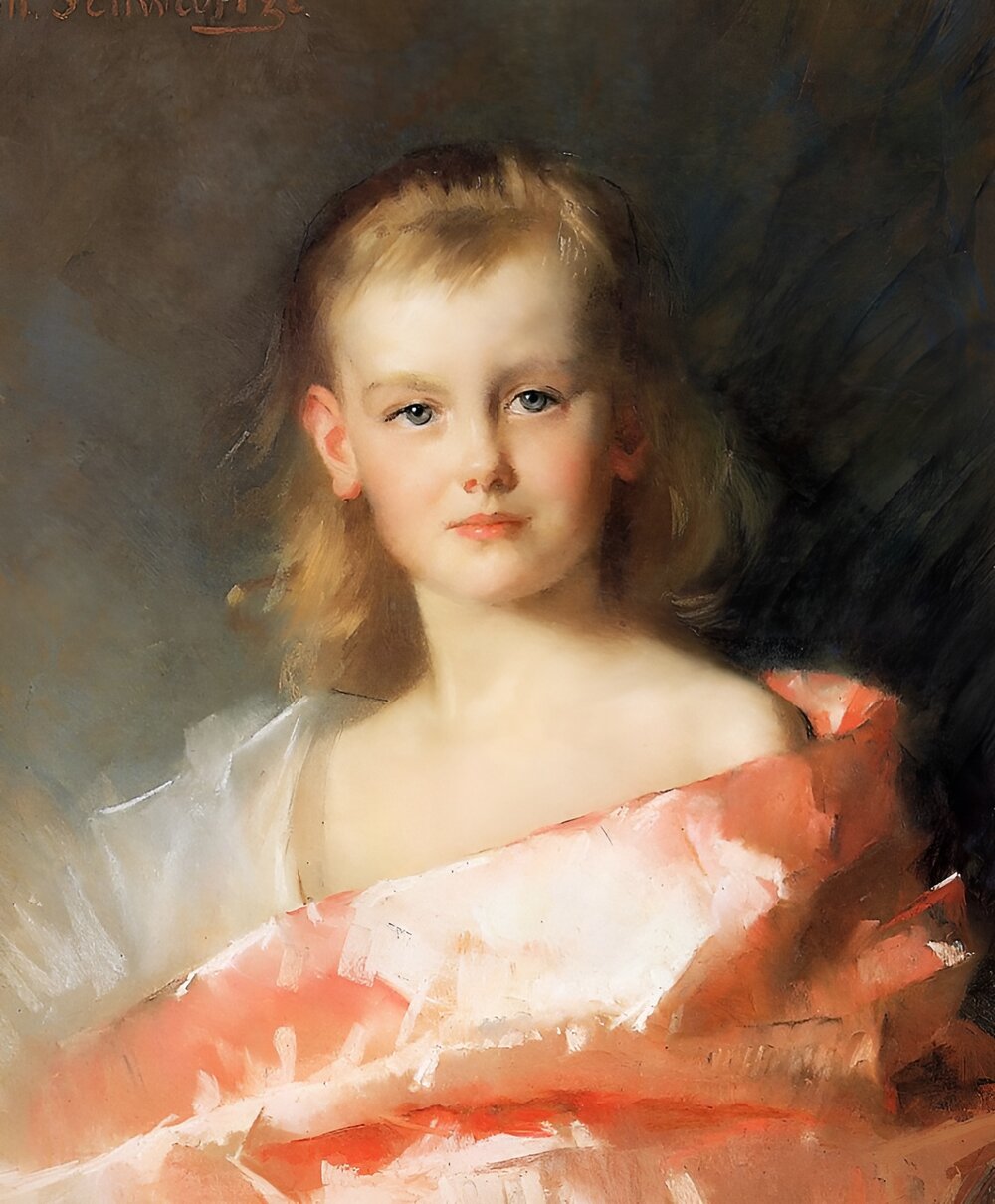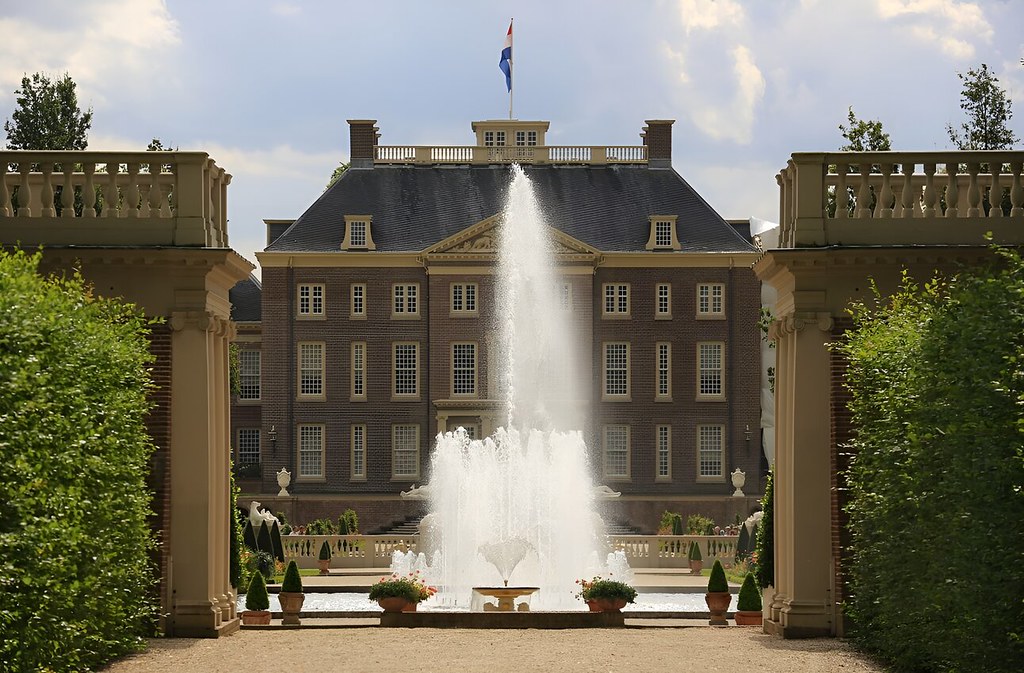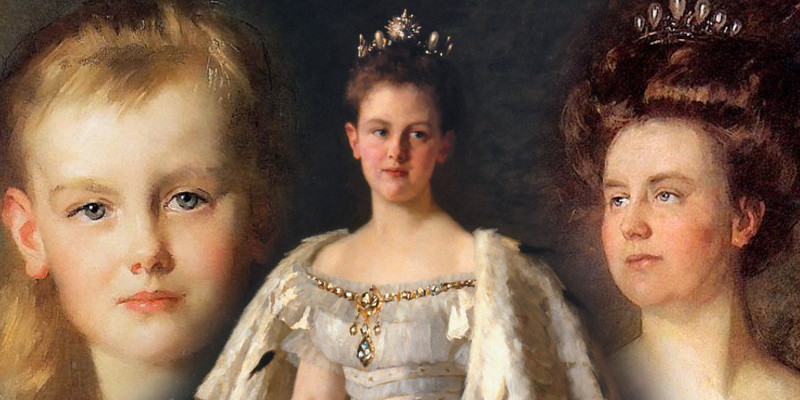Look at those eyes. Even at seven years old, Princess Wilhelmina of the Netherlands seemed to know she was destined for greatness.
And she wasn’t wrong—just three years later she became Queen of the Netherlands. Her mother, Emma, was named regent, but by all accounts, Wilhelmina was a wise head on young shoulders.

Our accompanying music is by Dutch composer Alphons Diepenbrock.
In 1895, when she was 15, she visited Queen Victoria in England, who wrote in her diary:
Enthroned in 1898 at 18 years old and married at 20, life moved fast for the young Queen Wilhelmina.

There was considerable pressure on Wilhelmina to produce an heir. Many people believed her heir presumptive—a German Prince with close associations with the Imperial family—would fold the Netherlands into the German Empire if he ever came to power.
After 8 years, two miscarriages and a stillborn son, the whole country was overjoyed when Princess Juliana was born in 1909. Although Wilhelmina suffered two further miscarriages, the birth of Juliana had assured the royal family of Orange-Nassau would continue.

Wilhelmina’s father, King William III, was 63 when she was born. He would only live another 10 years, but these were said to be the best years of his reign. Wilhelmina’s mother, Queen Emma, had a calming effect on her father’s impulsiveness. The marriage was a very happy one.
This stable environment must have given Wilhelmina a good start in life. She was strong willed and knew exactly what she wanted. With a keen business mind, her investment acumen made her the world’s richest woman, and the first female billionaire.

Such confidence showed itself early in her reign. At age 20, she ordered a Dutch warship to evacuate Paul Kruger from South Africa’s embattled Transvaal—an independent country until defeated in 1902 by the British in the Second Boer War, when it became a colony under British rule.
The Transvaal region of South Africa was inhabited by Boers—descendants of Dutch-speaking settlers. Many people of the Netherlands, including Wilhelmina, felt close ties with the Boers. For this reason, she disliked the United Kingdom intensely.
Her feelings towards Britain changed by the start of World War II when King George VI sent a British warship, this time to evacuate her and her family, along with her Government, to the safety of British shores.

The BBC provided its facilities so that Wilhelmina could broadcast to her people in the German-occupied Netherlands. Seen as a symbol of resistance, she called Hitler “the arch-enemy of mankind”. At great risk, many Dutch people tuned in to listen to her late-night broadcasts. Churchill described her as the only real man among the governments-in-exile in London.
On 4 September 1948, after a reign of 57 years and 286 days, Wilhelmina stepped down, handing the crown to her daughter Juliana. The influence of the Dutch monarchy had begun to decline, but the country still loved its royal family. Wilhelmina retreated to Het Loo Palace, making few public appearances until the devastating North Sea flood of 1953. Once again she rallied the Dutch people.

At the time of her death a New York Times obituary sums up what the Dutch people thought of their Queen Wilhelmina during World War II:

